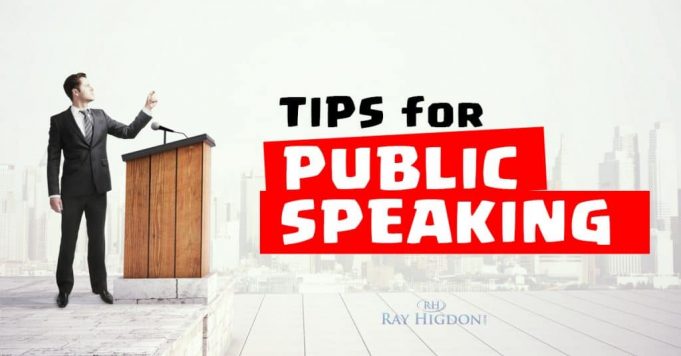For those who get weak in the knees at the thought of speaking in front of a group of people, here are the most essential public speaking tips for non-public speakers:
Draw on Innate Strengths, Skills, and Talents When Speaking to a Group of People
The first rule for anyone involved in public speaking: avoid trying to be something you are not. Speakers should become familiar with their natural abilities and build on them while compensating for any “lackings.” Some people have a good sense of humor… Some people can present information in a very clear and logical way… Some people are charismatic and can stir up a crowd… Some people are sensitive and can tell where their audience is holding… Every one of these abilities can be used to enhance one’s public speaking.
Use Public Speaking “Techniques” with Moderation
Public speakers have several public speaking techniques to choose from that can help make their presentations more interactive, engaging, and focused. Some common examples include: PowerPoint slides, hand outs, and an outline of the topics being discussed. While each of these tools have their place and importance, speakers should keep in mind that they do not need to use all of them to be a good speaker. These public speaking techniques are meant to enhance the speaker’s natural abilities and compensate for any deficiencies in the presentation. Those speakers who are in touch with their strengths and weaknesses will have an easier time picking out which techniques to use and deciding how and when to use them.
Come to the Speech Prepared
To be effective, anyone who needs to speak in public should not only know what they are speaking about and what message they want to give over, but they should also learn about who they are speaking to (For example, what are their interests? What is the ratio of male to female audience members? What are their ages?) Speakers should additionally take into consideration when they will be speaking ( i.e. In the morning? At the end of a long day?) as well as where they will be speaking (i.e. What is the size and layout of the room?).
Rehearsing Can Make a Better Presentation
One of the best techniques for effective public speaking is to practice giving over a presentation to someone and ask for feedback. Speakers can also record themselves speaking either via an audio recording or video tape and critique themselves.
Keep Everything in Perspective
Even the most talented public speakers can have “off” days. So if a novice speaker makes a mistake during a presentation or if it does not go as planned, it may not be as big as it feels. The speech will come to an end and life will go on (even if it does not seem like that at the time).
In short, by following these tips, even inexperienced or “challenged” public speakers can produce a successful and effective presentation.


















